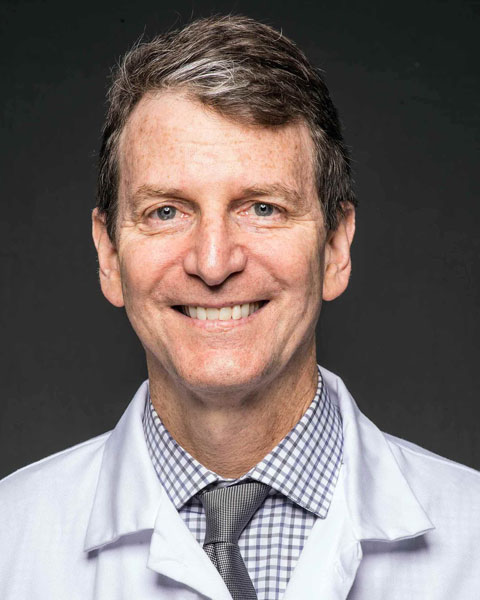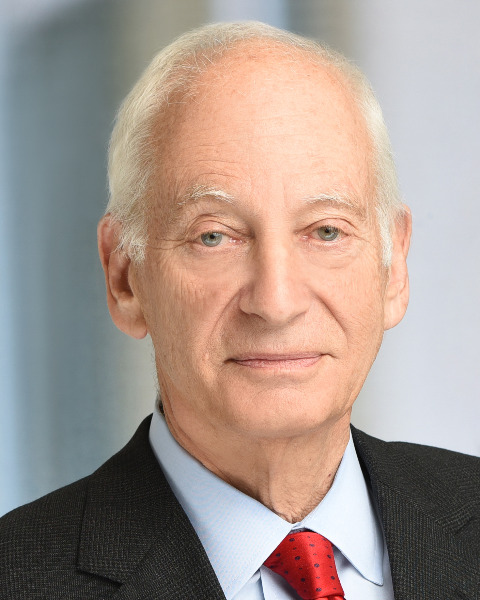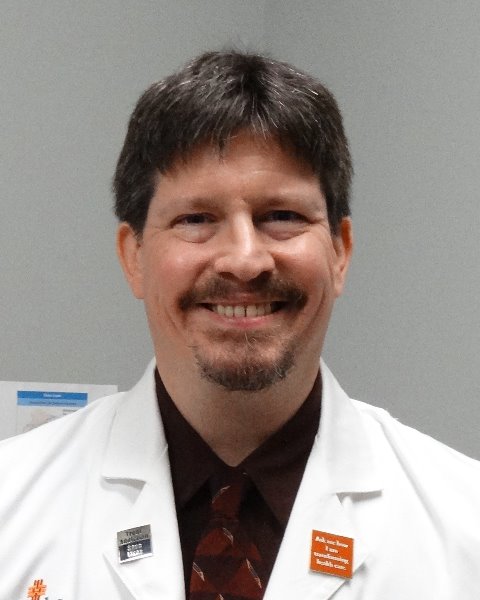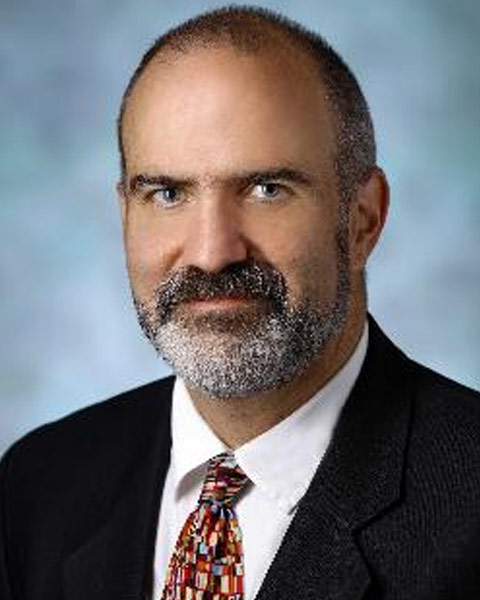
Alcohol Withdrawal Management Webinar Series
Recorded On: 07/29/2020
- Registration Closed

The ASAM Alcohol Withdrawal Management Webinar Series
Recorded: Wednesday, July 29, 2020 - Tuesday, November 17, 2020
On-Demand Sessions
Session I: Fundamentals
Alcohol is responsible for a multitude of health conditions, including Alcohol Withdrawal Syndrome (AWS). While frequently presented in specialty addiction treatment settings, patients experiencing or at risk for developing AWS also receive care in hospitals, emergency departments, and primary care settings. The current management of patients with AWS is inconsistent across care settings and evidence-based care is often not provided. The ASAM Clinical Practice Guideline on Alcohol Withdrawal Management was developed to address current practice concerns and provide clear guidance that will lead to more consistent treatment practices in the field.
The first of its series, this session outlines the highlights of the ASAM Clinical Practice Guideline on Alcohol Withdrawal Management, and addresses related concerns raised during the current COVID-19 pandemic.
Session Information
Recorded on: Wednesday, July 29, 2020
Speaker(s): Lewis Nelson, MD
Learning Objectives
By completing this session, you will be able to:
- Summarize the guideline’s treatment recommendations and discuss how they should be used in practice.
- Address the gaps in the management of alcohol withdrawal.
- Recognize the unique needs and recommendations during the COVID-19 pandemic.
Session II: Identification, Diagnosis, and Initial Assessment
The webinar follows the ASAM Alcohol Withdrawal Management Fundamentals webinar, which intends to aid clinicians in their clinical decision making and management of patients experiencing alcohol withdrawal syndrome, as written in The ASAM Clinical Practice Guideline on Alcohol Withdrawal Management.
Signs and symptoms of AWS can escalate quickly and the trajectory of alcohol withdrawal can vary considerably among patients. As the most severe presentations of alcohol withdrawal are life threatening, orienting the initial assessment toward evaluating risk is recommended. The second of its series, this webinar will provide an overview of the assessment recommendations around alcohol withdrawal management and in-depth information on tools and differential diagnosis.
Session Information
Recorded on: Monday, August 24, 2020
Speaker(s): Kurt Kleinschmidt, MD and Dazhe Cao, MD
Learning Objectives
By completing this session, you will be able to:
- Summarize the guideline’s treatment recommendations around assessment of alcohol withdrawal syndrome and discuss how they should be used in practice.
- Recognize the risk assessment tools available to identify patients at risk of developing alcohol withdrawal.
- Describe how to make appropriate differential diagnosis
Session III: Monitoring, Levels of Care, & Inpatient/Ambulatory Treatment
Level of care determinations should be based on an evaluation of the expected risks and benefits of treatment within each setting and monitoring a patient with AWS should include multiple indicators of withdrawal progress and patient health. Given that alcohol withdrawal management services are provided in both inpatient and ambulatory settings, this webinar will provide an overview of the recommendations for monitoring patients with AWS in these varying settings and levels of care.
Session Information
Recorded on: Tuesday, September 15, 2020
Speaker(s): George Kolodner, MD, DLFAPA, FASAM
Learning Objectives
By completing this session, you will be able to:
- Understand how to make an appropriate level of care determination for patients seeking alcohol withdrawal management services.
- Identify the level of care determination tools available to help determine the appropriate level of care for patients with AWS.
- Summarize the guideline’s treatment recommendations around inpatient and ambulatory settings and recognize the difference in the services provided in each setting.
Session IV: Pharmacotherapy
Appropriate pharmacotherapy for alcohol withdrawal is a balance of alleviating symptoms and normalizing signs of AWS while preventing the adverse effects associated with the medications being administered. This webinar will provide an overview of the recommendations around the appropriate use of pharmacotherapy for patients with AWS.
Session Information
Recorded on: Tuesday, October 20, 2020
Speaker(s): Michael F. Weaver, MD, FASAM
Learning Objectives
By completing this session, you will be able to:
- Summarize the guideline’s treatment recommendations around pharmacotherapy and discuss how they should be used in practice.
- Recognize all medications that can be used to treat patients with AWS and explain the circumstances in which one form of medication is more effective than another.
- Understand the limitations and risks associated with the various medications used to treat patients with AWS.
Session V: Complicated Withdrawal & Special Populations
Aspects of management may need to be adjusted for patients with or at risk for complicated AWS, such as the development of alcohol withdrawal seizure or alcohol withdrawal delirium, alcohol-induced psychotic disorder, or resistant alcohol withdrawal. Special considerations should also be given to specific populations including patients with medical conditions, patients who take opioids, and patients who are pregnant. This webinar will provide an overview of the treatment recommendations around both complicated withdrawal and special populations.
Session Information
Recorded on: Tuesday, November 17, 2020
Speaker(s): Darius Rastegar, MD, FASAM
Learning Objectives
By completing this session, you will be able to:
- Summarize the guideline’s treatment recommendations around complicated withdrawal and discuss how they should be used in practice.
- Identify the different types of complicated withdrawal and how management should be adjusted for each.
- Describe the different special populations and how management should be adjusted for each.

Lewis Nelson
MD, FACEP, FACMT, DFASAM
Lewis Nelson, MD, FACEP, FACMT, DFASAM is Professor and Chair of the Department of Emergency Medicine and Chief of the Division of Medical Toxicology at Rutgers New Jersey Medical School in Newark, NJ. He is a member of the Board of Directors of the American Board of Emergency Medicine and a Past-President of the American College of Medical Toxicology. He remains actively involved with the CDC, FDA, DHS, and several professional medical organizations, including ASAM. Dr. Nelson is an editor of the textbook Goldfrank’s Toxicologic Emergencies and on the editorial boards of several journal.
No Relevant Financial Disclosures

Dazhe (James) Cao
MD
Dazhe (James) Cao, MD s an Assistant Professor in the Department of Emergency Medicine at UT Southwestern Medical Center.
Dr. Cao earned his medical degree at Baylor College of Medicine. He completed a residency in emergency medicine at Carolinas Medical Center and received advanced training in medical toxicology through a fellowship at Rocky Mountain Poison & Drug Safety.
Certified by the American Board of Emergency Medicine in emergency medicine and medical toxicology, he joined the UT Southwestern faculty in 2015.
Dr. Cao is Program Director of Medical Toxicology at UT Southwestern and Medical Director of Toxicology for the Parkland Health & Hospital System. He serves on the American College of Medical Toxicology’s Fellowship Directors committee.
In addition, he is a member of the American Academy of Clinical Toxicology, the American College of Emergency Physicians, and the Emergency Medicine Residents’ Association.
Dr. Cao has delivered numerous national and regional invited lectures, contributed to the seventh edition of the book Emergency Medicine Secrets, and published several academic articles.

Kurt Kleinschmidt
MD
Kurt C. Kleinschmidt, MD, FACMT, FASAM is a Professor of Emergency Medicine at the University of Texas Southwestern Medical Center in Dallas, Texas. He is Chief of the Division of Medical Toxicology. His areas of interest include Substance Use Disorders and snake envenomations. He graduated from the University of South Florida College of Medicine in 1986, completed his emergency medicine residency at Madigan Army Medical Center in 1990, and finished a clinical fellowship in Medical Toxicology at the University of Texas Southwestern Medical Center in 1999. He is board certified in Emergency Medicine (1991), Medical Toxicology (2002), and Addiction Medicine (2015). He became the Medical Director of the Perinatal Intervention Program in Parkland Health and Hospital system in 2016. He served as the Toxicology Program Director from 2004-2018.

George Kolodner
MD, FASAM
Dr. George Kolodner is an addiction psychiatrist who specializes in the outpatient treatment of substance use disorders. After receiving his M.D. from the University of Rochester, he completed his psychiatric training at Yale University. In 1973 he designed the first intensive outpatient treatment program (IOP) in the country. By adding withdrawal management on the front end and non-intensive continuing care on the back end, he created a comprehensive outpatient model for the treatment of substance use disorders. His ASAM activities include serving as the lead editor of the Withdrawal Management section of the 3rd edition of ASAM Criteria. Dr. Kolodner is also active teaching about addictions at the Georgetown University School of Medicine, where he is a Clinical Professor of Psychiatry.

Michael Weaver
MD, DFASAM
Michael Weaver, MD, DFASAM is a Professor in the Department of Psychiatry and Medical Director of the Center for Neurobehavioral Research on Addiction (CNRA) at the McGovern Medical School at the University of Texas Health Science Center at Houston (UTHealth). He received his M.D. degree from Northeast Ohio Medical University, and completed Residency in Internal Medicine and a Clinical Research Fellowship in Addiction Medicine at Virginia Commonwealth University (VCU) Health System, and he is Board-certified in Internal Medicine through the American Board of Internal Medicine and certified in Addiction Medicine through the American Board of Preventive Medicine. Dr. Weaver is the Sub-Board Chair for Addiction Medicine on the American Board of Preventive Medicine, and also serves as the Chair of the Examination Committee for certification in Addiction Medicine. He has been a member of ASAM for over 20 years and has been a member of the Publications Council and the Annual Conference Program Planning Committee. He is currently involved in patient care, medical education, and research. Dr. Weaver sees patients in the Innovations Addiction Treatment Clinic at the Texas Medical Center in Houston.
He has extensive experience teaching about addiction to medical students, residents, and community professionals at all levels. He has been involved in multiple research projects, and currently is collaborating with other researchers in the CNRA on studies involving cocaine, methamphetamine, marijuana, and electronic cigarettes. Dr. Weaver has multiple publications in the field of addiction medicine, including the book "Addiction Treatment" published by Carlat Publishing in 2017.
No relevant financial disclosures.

Darius Rastegar
MD
Dr. Rastegar provides treatment for substance use disorders in an outpatient primary care setting and an inpatient unit. He is an Associate Professor of Medicine at Johns Hopkins University School of Medicine and is the medical director for the Chemical Dependence Unit at Johns Hopkins Bayview Medical Center. He is the co-author of The ASAM Handbook of Addiction Medicine.
Disclosure Information
In accordance with disclosure policies of ASAM and the ACCME, the effort is made to ensure balance, independence, objectivity, and scientific rigor in all CME activities. These policies include resolving all possible conflicts of interest for the Planning Committees, CME Committee, MEC, and Faculty. All activity Planning Committee members and Faculty have disclosed relevant financial relationship information. The ASAM CME Committee has reviewed these disclosures and determined that the relationships are not inappropriate in the context of their respective presentations and are not inconsistent with the educational goals and integrity of the activity.
- Lewis S. Nelson, MD, FASAM (Chair) – No Relevant Financial Disclosures
- Kurt Kleinschmidt, MD, FASAM – No Relevant Financial Disclosures
- Gerald E. Marti, MD, PhD – No Relevant Financial Disclosures
- Darius Rastegar, MD, FASAM – No Relevant Financial Disclosures
- Dazhe Cao, MD – No Relevant Financial Disclosures
- George Kolodner, MD, DLFAPA, FASAM – Does Disclose: Kolmac Outpatient Recovery Centers, Self, Employment, Ownership Interest (includes stock, stock options, patent or other intellectual property) Clinical Condition: Substance Use Disorder
- Michael F. Weaver, MD, DFASAM – No Relevant Financial Disclosures
Accreditation
This webinar series, recorded in 2020, is no longer eligible for CME/CE credits.

